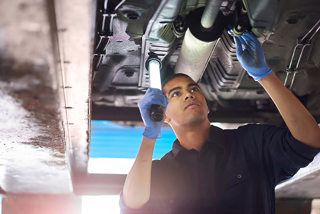Car and van fleet management have always had differing processes and policies, but FleetCheck claims Covid-19 will deepen the divide further for mixed fleets.
The fleet software specialist says the focus for car fleets will be around whether journeys are required while, for vans, it will be more about efficient management of journeys that are definitely needed.
FleetCheck’s managing director, Peter Golding, explained: “Really, this is all about the need in a world where coronavirus is still very much present to minimise face-to-face contact with others and use video-conferencing as an alternative.
“It’s a question of how these factors will affect the number of company car journeys that are undertaken.”
Fleets told Fleet News they expect the long-term impact of coronavirus on operations to include reduced mileage, greater use of technology and fewer company cars.
The survey of more than 150 fleet decisionmakers found that almost 61% also expect to see average mileages of their company car fleet fall and more than a third (35.8%) said that they expect to be running fewer company cars in the future.
Paul Hollick, chairman of fleet representative body the Association of Fleet Professionals (AFP), said: “A lot of fleet operators I’ve spoken to are starting to think about re-writing some of their contracts with lease companies in anticipation of the fact they won’t be three years/60,000 miles any more.”
He believes that four years/60,000 miles or three years/45,000 miles could, instead, become the ‘new normal’.
Golding says there is a strong argument that the impact of coronavirus will change the shape of car fleets completely until a vaccine or other solution emerges.
“In the past, whether you needed a company car was often decided on the basis of how many miles you covered in a year. Now, that is likely to change to look at quality and necessity of usage.”
He continued: “Even when the coronavirus question is resolved to the point where real world meetings are possible, a fundamental question for car fleets is going to be whether a journey needs to take place?
“Can that monthly client account meeting now be done once a quarter by car and the rest of the time as a video conference, saving everyone time and money?”
Golding claims the big difference for van fleets is that no-one really questions whether a journey is necessary. “If it is being undertaken, it is because a delivery is needed or an engineer and their equipment are required in a particular place. Necessity is taken for granted.”
Fewer vans have been standing idle than company cars during lockdown, results from the Fleet News survey suggest.
Two-in-five fleets (41.5%) said they were operating more than 75% of their light commercial vehicles (LCVs).
More than half (57.3%) of respondents said that the majority of company cars they operate were not being driven for work. More than two-in-five (43.3%) said that less than a third of the vehicles on their company car fleet were being driven for work.
Golding said: “There have always been major differences in car and van fleet management as disciplines but the coronavirus crisis and these new methods of working will accelerate that split.
“More than ever, vans will be about practicalities and cars about choice, and best practice for both types of vehicle will be very much dictated by that fundamental difference.”
However, Golding does not see company cars becoming less popular or less numerous as a result of the shift.
“Our view is that, even in the longer term once coronavirus is under control, company cars will be used for fewer journeys,” he said.
“However, those journeys that are undertaken will remain very important to employers. There will always be a need for human contact in a business environment, especially when it comes to building and maintaining important relationships.
“Also, something that is often underestimated but of crucial importance is the sheer flexibility of the company car. It is unmatched as a business transport tool in this respect.
“If you need to visit a location that isn’t based in a city centre, or to go to two or three varied locations in a day, for example, there is really no other viable option.
“Finally, there are extremely strong pull factors attached to company cars for employees. They remain not only a very popular benefit but, thanks to the low taxation attached to electric vehicles for the foreseeable future, a very cost-effective option.”























Login to comment
Comments
No comments have been made yet.